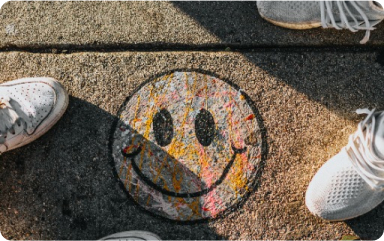What Is EMDR Therapy and How Can It Help You Heal From Trauma?
If you’ve tried to move on — and still feel stuck — EMDR might be the missing piece.
Let’s be honest:
You’ve probably been told to “talk about it.”
You’ve tried to think your way through the pain.
You’ve read the self-help books. Maybe even gone to therapy.
And still — it lingers.
The tension in your shoulders.
The moment that replays when you least expect it.
The way your heart races even when there’s nothing wrong.
This is the silent weight of unresolved trauma.
And EMDR is one way to finally start letting it go.
🌿 What Is EMDR Therapy, Really?
EMDR stands for Eye Movement Desensitization and Reprocessing — but don’t let the clinical language throw you off.
Here’s what it actually means:
EMDR helps your brain finish what it couldn’t complete during a traumatic or overwhelming event.
When something painful happens — loss, abuse, betrayal, medical trauma, or even emotional neglect — your brain doesn’t always know how to “file” that memory. It gets stuck. And because of that, your nervous system acts like it’s still happening.
EMDR uses gentle bilateral stimulation (eye movements, tapping, or sound) while you revisit that memory from a safe, grounded space — which allows your brain to finally finish the job.
You’re not reliving it. You’re reprocessing it.
And when that happens?
Your body, emotions, and mind can finally settle.
✨ Why EMDR Works for Women Who’ve Been Through a Lot
Most of the women I work with aren’t new to healing.
They’ve done the talk therapy. They’ve journaled, meditated, survived.
But trauma doesn’t live in your thoughts. It lives in your body.
And that’s why EMDR feels different — and works differently.
EMDR is especially powerful if you:
- Have trauma or grief that feels “unfinished”
- Startle easily or feel emotionally reactive
- Can’t stop thinking about something painful from the past
- Struggle with anxiety, panic, or fear without clear cause
- Want to heal without having to retell your whole story
You don’t need to go into graphic detail.
You don’t have to “explain” everything.
In EMDR, your brain does the heavy lifting — we just guide it safely.
🧘 What to Expect in a Session
At Paws and Reflect Services, EMDR sessions are trauma-informed and deeply respectful of your pace.
A session might include:
- A grounding check-in (you never jump straight in)
- Breathwork or somatic prep to settle your nervous system
- Bilateral stimulation (eye movements or tapping while recalling)
- Time to reflect, integrate, and process gently afterward
- Optional support tools like therapy dogs or soundbed therapy to deepen calm
You’ll never be pushed. You’ll always be in control.
This isn’t about “fixing” you. It’s about helping you release what was never yours to carry in the first place.
💬 What Women Say About EMDR
“It’s like my brain could finally breathe. I don’t think about that moment every day anymore.”
“I’ve done years of therapy — this was the first time something actually shifted.”
“I didn’t expect much. But after a few sessions, I noticed I wasn’t waking up in a panic anymore. That’s huge.”
🔄 Who EMDR Is For
You don’t need a diagnosis to benefit.
You don’t need to have survived something “big enough.”
If your body is still bracing, if your heart still hurts, if you feel like you’ve been surviving on autopilot — EMDR is worth exploring.
It helps women recovering from:
- Childhood emotional neglect or trauma
- Sexual trauma or boundary violations
- Loss of a loved one or pet
- Divorce, betrayal, and relational grief
- Chronic anxiety and CPTSD
- Medical trauma, miscarriages, or unacknowledged pain
🔑 Why EMDR at Paws and Reflect Feels Different
I don’t offer clinical EMDR in a cold office with a timer.
I offer healing.
I’m a trauma survivor too. I’ve done this work myself. I know what it’s like to feel fragile and fierce at the same time — to want change and be afraid of it.
That’s why we build trust first. That’s why we go slow. That’s why EMDR here is always paired with:
- Somatic body awareness
- Deep emotional safety
- Optional dog-assisted support
- A warm, nonjudgmental relationship





